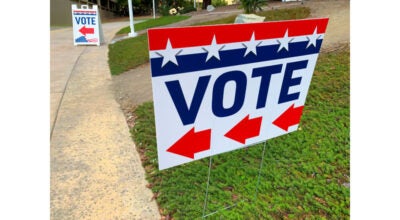We deserve an ‘F’
Published 12:12 pm Wednesday, January 12, 2022
|
Getting your Trinity Audio player ready...
|
Publisher’s Note: Soucek originally sent this letter to the Virginia Secretary of Education and the Education Committee of the Virginia House of Delegates, with a plan for further communications at the Federal, state, and others at the community level.
This open letter to you is to express my concern about the mental health of our children—perhaps especially those in our systems of public education.
Considering rising rates of depression, anxiety, and suicidal tendencies (which were rising before the pandemic struck), this terrible problem has been receiving inadequate attention at the community level—partly as a result of the low priority given it at the state level.
Accordingly, flexibility for classroom instruction, school guidance capabilities, school system budgets, social services case work, public health programs, and law enforcement are all grossly under-resourced. And that is regarding only our reactive efforts!
It boggles the mind to see that so much of this is avoidable if only we were to apply proactive measures that would reduce the development of the mental health issues that are plaguing our children (and therefore our communities)—as evidenced by the resulting problems with academic performance, school attendance, dropout rates, youthful delinquency and crime, suicide, an insidiously harmful vulnerability to manipulation by social media, under-motivation and hopelessness, the more obvious disruptive behaviors in our schools, and the inadequacies of too many youths to perform well as candidates for the world of fulfilling, successful employment while otherwise contributing to a thriving community. And it’s not their fault (!); they are the victims of an irresponsible adult community.
Simply, we have been failing our children—We adults deserve an “F”—and those who are measurably accountable hold the reins of power at the state and community levels, among our public education leadership, yes, but perhaps especially among those in our bodies of governance.
And this is not to forget about the ultimate seat of power in our society—the electorate, a majority of whom cannot even name the three branches of the Federal government (much less understand how our government is designed to work) and who have become satisfied to hide behind their anonymity of silence and their vain hope that “Surely someone (else) will do something!” …We are headed for the cliff.
We must place a significantly higher value and priority upon the mental health of our children, through much more support for local agencies that are responsible not only to react to problems arising from mental health issues; but especially through much more investment in the development of proactive measures designed to minimize if not prevent such problems from developing in the first place.
In the long view, there are few things more important than society’s tangible investment in the well-being of its children through a proper, holistic education and through proper attention to their mental health needs. We are failing, utterly, on both accounts.
For us to continue to say—meeting after meeting, and year after year—(at the state but also at the community level) that, “Unfortunately, there are more important issues on our plate at the moment” is to shortsightedly and consciously undermine the well-being of our children—along with the future well-being and success of our communities and of our society at large. We must get out of our exclusive rut of reactive crisis management.
Please give to me as well as to the general public an acknowledgement of the gravity of this problem—and an assurance that measurable, corrective action will be undertaken “sooner than later,” remembering that talk is cheap.
If you would like for me to furnish you with a few of my own, specific ideas that could potentially help, just let me know and I will be happy to comply.
“Above all things I hope the education of the common people will be attended to, convinced that on their good sense we may rely with the most security for the preservation of a due degree of liberty.” —Thomas Jefferson to James Madison, December 20, 1787
Howie Soucek
Franklin





